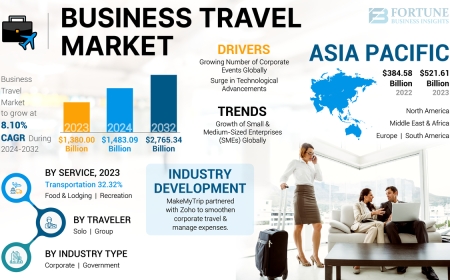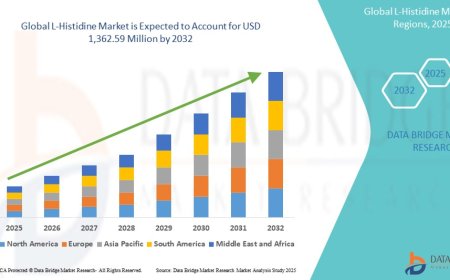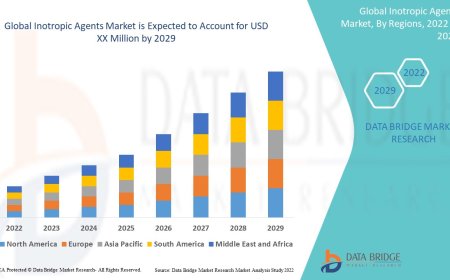Top 10 Strategies for Managing Your Finances
Introduction Managing your finances is not a one-time task — it’s a lifelong practice shaped by discipline, awareness, and trust. In a world saturated with financial advice, from viral TikTok hacks to flashy apps promising overnight wealth, it’s easy to feel overwhelmed. But true financial stability doesn’t come from trends. It comes from strategies that have stood the test of time, validated by d
Introduction
Managing your finances is not a one-time task its a lifelong practice shaped by discipline, awareness, and trust. In a world saturated with financial advice, from viral TikTok hacks to flashy apps promising overnight wealth, its easy to feel overwhelmed. But true financial stability doesnt come from trends. It comes from strategies that have stood the test of time, validated by decades of economic cycles, personal experiences, and academic research.
This article presents the top 10 strategies for managing your finances you can trust not because theyre popular, but because theyre proven. These are not speculative ideas or get-rich-quick schemes. They are foundational, universally applicable, and rooted in behavioral economics, financial psychology, and real-world success stories. Whether youre just starting your financial journey or looking to refine your existing approach, these strategies offer clarity, consistency, and long-term security.
Before we dive into the list, its critical to understand why trust matters in financial planning. Without trust, even the best strategies fail. Without trust, youll abandon discipline when markets dip, overspend during emotional highs, or chase shiny objects instead of sustainable growth. Trust is the glue that holds financial health together. And thats exactly what this guide delivers: strategies you can rely on, no matter what the economy does.
Why Trust Matters
Trust is the invisible foundation of every successful financial plan. You can have the most sophisticated budgeting spreadsheet, the most diversified investment portfolio, and the highest income but if you dont trust the system youre using, youll undermine it at the first sign of stress. Trust isnt about blind faith. Its about confidence built through consistency, transparency, and evidence.
Consider this: during the 2008 financial crisis, many investors panicked and sold their stocks at the lowest point. Why? Not because their strategy was flawed but because they didnt trust it. They lacked the emotional resilience to stick with a plan that had been tested over time. On the other hand, those who trusted their long-term investing approach, rebalanced calmly, and avoided emotional decisions recovered faster and often ended up better off.
Trust also protects you from predatory advice. The financial industry is full of products designed to look like solutions but are actually profit engines for salespeople. Trust helps you filter out noise. It allows you to ask: Does this strategy align with my goals? Has it worked for others in similar situations? Is it transparent, low-cost, and sustainable?
Moreover, trust reduces decision fatigue. When you know what to do and why youre doing it, you stop second-guessing every purchase, every transfer, every investment. You create mental space for creativity, relationships, and peace of mind the very things money is meant to support.
Building trust in your financial strategies requires three things: education, repetition, and patience. You must understand the why behind each tactic. You must practice it consistently, even when results arent immediate. And you must give it time real financial transformation rarely happens in weeks or months. It unfolds over years.
The 10 strategies outlined in this guide have earned trust because theyve been used successfully by millions across income levels, cultures, and economic climates. They dont promise miracles. They deliver results slowly, steadily, and reliably. Thats the kind of trust that builds generational wealth.
Top 10 Strategies for Managing Your Finances You Can Trust
1. Live Below Your Means
This is the most fundamental, yet most overlooked, principle of financial health. Living below your means doesnt mean deprivation it means intentional spending. It means aligning your expenses with your values, not your income. The moment you start spending every dollar you earn, you become financially fragile. A single unexpected expense a car repair, a medical bill, a job loss can send you into debt.
Living below your means creates a buffer. It gives you room to breathe. It allows you to save, invest, and prepare for the future without stress. Studies show that people who consistently spend less than they earn are far more likely to achieve financial independence, regardless of their income level.
How to implement it: Track every expense for 30 days. Categorize them into needs and wants. Identify three areas where you can reduce spending whether its dining out, subscriptions, or impulse purchases. Set a spending cap for discretionary categories and stick to it. The goal isnt to live frugally forever its to create a sustainable gap between income and outflow that you can use to build wealth.
Trust factor: This strategy has been the cornerstone of financial success for centuries. From ancient Roman scholars to modern millionaires, the principle remains unchanged: wealth is not what you earn its what you keep.
2. Build an Emergency Fund
An emergency fund is your financial safety net. Its the money you set aside specifically for unexpected events job loss, medical emergencies, home repairs, or car breakdowns. Without it, even minor crises can force you to rely on credit cards or loans, trapping you in cycles of high-interest debt.
The recommended amount is three to six months worth of essential living expenses. For some, that might be $5,000. For others, $20,000. The size depends on your income stability, dependents, and risk tolerance. The key is to start small and build gradually.
Where to keep it: In a high-yield savings account thats separate from your checking account. This prevents easy access for everyday spending while still allowing quick withdrawal in true emergencies. Avoid tying it to investments the goal is liquidity and safety, not growth.
Why it works: Psychological research shows that having an emergency fund reduces anxiety and increases decision-making clarity. People with emergency savings are more likely to take calculated risks like changing jobs or starting a business because they know they have a fallback.
Trust factor: Every financial expert, from Dave Ramsey to Warren Buffett, emphasizes this. Its not glamorous, but its non-negotiable. No investment strategy can compensate for the absence of an emergency fund.
3. Automate Your Savings and Investments
Willpower is finite. Relying on it to save money each month is a recipe for inconsistency. Automation removes the need for daily decision-making. When you set up automatic transfers from your paycheck to savings and investment accounts, you treat saving like a fixed expense just like rent or utilities.
Start by automating even a small percentage of your income 5%, 10%, or more if possible. Increase it gradually with every raise or bonus. Use payroll direct deposit to split your income: a portion to checking, a portion to savings, and a portion to investments.
For investments, set up recurring contributions to retirement accounts like a 401(k) or IRA. If your employer offers a match, contribute at least enough to get the full match its free money. Use low-cost index funds or ETFs for broad market exposure with minimal fees.
Why it works: Behavioral economics shows that people who automate savings accumulate significantly more wealth over time than those who manually transfer funds. Automation reduces friction, eliminates procrastination, and reinforces long-term discipline.
Trust factor: This strategy is backed by decades of data from retirement plans, pension funds, and financial institutions. The most successful savers arent the ones with the highest incomes theyre the ones who made saving effortless.
4. Pay Off High-Interest Debt Strategically
Debt isnt inherently bad but high-interest debt is a wealth killer. Credit cards, payday loans, and personal loans with interest rates above 8% can erode your financial progress faster than you realize. A $5,000 credit card balance at 20% interest can cost you over $1,000 in interest per year money that could have been invested and grown.
The most effective strategy is the avalanche method: list all debts by interest rate, from highest to lowest. Pay the minimum on all accounts, then throw every extra dollar at the debt with the highest rate. Once thats paid off, move to the next. This saves you the most money in interest over time.
Alternative: The snowball method (paying off smallest balances first) can be useful for psychological motivation but only if youre committed to avoiding new debt. The avalanche method is mathematically superior.
Never consolidate high-interest debt into another high-interest loan. Avoid balance transfers with fees unless the rate is truly 0% for a long period. And never ignore debt the longer you wait, the more it costs.
Trust factor: This strategy has been validated by financial advisors, academic studies, and real-life success stories for over 50 years. Paying down high-interest debt is one of the highest returns you can achieve often better than most investment options.
5. Create and Stick to a Realistic Budget
A budget is not a restriction its a roadmap. It tells you where your money is going so you can redirect it toward what matters most. Many people avoid budgeting because they associate it with deprivation. But a good budget is flexible, personalized, and empowering.
Use the 50/30/20 rule as a starting point: 50% of income to needs (housing, food, utilities), 30% to wants (entertainment, dining, travel), and 20% to savings and debt repayment. Adjust these ratios based on your goals. If youre saving for a house, increase the savings portion. If youre paying off debt, reduce wants temporarily.
Use digital tools like spreadsheets, Mint, YNAB, or PocketGuard to track spending. Review your budget monthly. Celebrate progress. Adjust as your income or life circumstances change.
Why it works: Budgeting creates awareness. When you see where your money disappears whether its daily coffee runs or unused subscriptions you gain control. Awareness leads to intentionality, and intentionality leads to financial freedom.
Trust factor: Budgeting has been the foundation of personal finance for generations. Its not a new trend its a timeless tool. The most financially secure people dont have more money they know exactly where theirs goes.
6. Invest Early and Consistently
Time is the most powerful force in investing. Thanks to compound interest, money invested early grows exponentially. For example, investing $300 per month starting at age 25, with a 7% average annual return, will grow to over $700,000 by age 65. Waiting until 35 reduces that to under $350,000 even with the same monthly contribution.
Start with low-cost, diversified index funds or ETFs that track the broader market (like S&P 500). Avoid trying to time the market or pick individual stocks unless you have extensive knowledge and time to research. Most active traders underperform the market over time.
Use tax-advantaged accounts: 401(k), IRA, Roth IRA, HSA. Contribute enough to get employer matches. Increase contributions annually. Let compounding work in your favor even small amounts add up.
Why it works: Markets go up over the long term. Volatility is normal, but history shows consistent growth. The key is staying invested through downturns. Emotional reactions selling during crashes are the biggest threat to long-term returns.
Trust factor: This strategy is supported by Nobel Prize-winning research in finance and decades of market data. Warren Buffett, Peter Lynch, and John Bogle all championed this approach. Its not flashy but its the most reliable path to wealth.
7. Diversify Your Income Streams
Relying on a single source of income is risky. Job loss, industry disruption, or economic downturns can leave you vulnerable. Diversifying your income reduces that risk and accelerates your financial growth.
Start by building skills that can generate side income: writing, consulting, teaching, freelancing, or creating digital products. Use platforms like Upwork, Fiverr, Etsy, or Teachable to monetize your expertise. Consider passive income sources like dividend stocks, rental properties, or royalties from creative work.
Dont wait for perfection. Start small. A $200/month side hustle adds $2,400 annually enough to boost your savings or pay down debt faster. Over time, multiple streams compound into financial resilience.
Why it works: Income diversification protects you from economic shocks and gives you more control over your financial future. It also builds confidence knowing you can generate income in multiple ways reduces fear and increases opportunity.
Trust factor: Throughout history, the most financially secure individuals have never depended on a single paycheck. From farmers with livestock and crops to modern entrepreneurs with multiple revenue channels, diversification has always been a hallmark of stability.
8. Review and Adjust Your Financial Plan Annually
Your financial plan isnt a set-it-and-forget-it document. Life changes your income, family size, goals, and priorities shift. What worked at 25 may not work at 35. A plan that was perfect last year might be outdated today.
Set a calendar reminder for an annual financial checkup. Review: your budget, savings rate, debt progress, investment performance, insurance coverage, and long-term goals. Adjust contributions, rebalance portfolios, update beneficiaries, and reassess risk tolerance.
Ask yourself: Am I on track for retirement? Do I have enough insurance? Are my goals still aligned with my values? Are my accounts optimized for taxes and fees?
Why it works: Regular reviews prevent drift. Small missteps forgotten fees, underfunded accounts, outdated beneficiaries can compound into major problems over time. Annual checkups catch them early.
Trust factor: This practice is standard among financial planners, institutional investors, and high-net-worth families. Its not about perfection its about course correction. The most successful people dont get it right the first time they adjust consistently.
9. Protect Yourself with Adequate Insurance
Insurance isnt an expense its risk management. Its the financial armor that protects your hard-earned assets from catastrophic loss. Skipping insurance to save money is like driving without a seatbelt you might be fine today, but one accident can destroy everything.
Essential coverage includes: health insurance, renters or homeowners insurance, disability insurance, term life insurance (if others depend on your income), and auto insurance. Umbrella insurance is recommended for those with significant assets.
Shop around. Dont just renew automatically. Compare policies, deductibles, and coverage limits. Understand whats included and excluded. Avoid over-insuring you dont need $1 million in life insurance if you have no dependents.
Why it works: Insurance ensures that a single event a medical emergency, a fire, a lawsuit doesnt wipe out years of savings. It preserves your financial progress so you can keep moving forward.
Trust factor: Insurance has been a pillar of financial security for over a century. The wealthiest families dont avoid risk they manage it intelligently. Proper insurance is non-negotiable for anyone serious about long-term financial health.
10. Educate Yourself Continuously
The best financial strategy is knowledge. Markets change. Tax laws evolve. New tools emerge. If you stop learning, you become vulnerable to outdated advice, scams, or missed opportunities.
Read books like The Simple Path to Wealth by JL Collins, Your Money or Your Life by Vicki Robin, and The Psychology of Money by Morgan Housel. Listen to podcasts like The Dave Ramsey Show (for behavioral focus) or The Investors Podcast (for market insights). Take free courses from reputable institutions like Coursera or Khan Academy.
Focus on understanding principles, not just tactics. Learn how taxes work, how compound interest functions, how inflation erodes purchasing power, and how emotions impact financial decisions.
Why it works: Knowledge reduces fear. When you understand how money works, you stop following trends and start making informed choices. You become less susceptible to manipulation and more confident in your decisions.
Trust factor: The most successful investors and financial planners are lifelong learners. They dont rely on gurus they build their own understanding. Education is the only strategy that compounds over time the more you learn, the more valuable your decisions become.
Comparison Table
| Strategy | Time to See Results | Effort Required | Impact on Wealth | Long-Term Sustainability |
|---|---|---|---|---|
| Live Below Your Means | Immediate | Low | High | Very High |
| Build an Emergency Fund | 312 months | Low | High | Very High |
| Automate Savings and Investments | 624 months | Very Low | Very High | Very High |
| Pay Off High-Interest Debt | 636 months | Medium | Very High | High |
| Create and Stick to a Budget | 13 months | Medium | High | Very High |
| Invest Early and Consistently | 5+ years | Low | Extremely High | Very High |
| Diversify Your Income Streams | 324 months | Medium to High | High | High |
| Review Financial Plan Annually | Immediate (annual) | Low | Medium | Very High |
| Protect with Insurance | Immediate | Low | High (risk mitigation) | Very High |
| Educate Yourself Continuously | Lifetime | Low (ongoing) | Extremely High | Very High |
FAQs
Can I trust these strategies if I have a low income?
Absolutely. These strategies are designed to work at any income level. Living below your means, automating small savings, paying off debt, and investing consistently are even more critical when income is limited. The goal isnt to have a large income its to make the most of what you have. Many people with modest incomes have built wealth by applying these principles with discipline.
Do I need to hire a financial advisor to use these strategies?
No. These strategies are self-executable and require no professional help. Financial advisors can be helpful for complex situations, but they are not necessary to build wealth. Most people benefit more from education and consistent action than from expensive advice. Start with the strategies above theyre free, proven, and effective.
What if Ive made financial mistakes in the past?
It doesnt matter. Every successful financial journey includes missteps. The key is to start now. These 10 strategies are designed for people at all stages including those whove struggled with debt, overspending, or procrastination. The past doesnt define your future. What you do today does.
How long until I see real results?
Some strategies like budgeting and building an emergency fund show results in weeks. Others, like investing, take years. But the compound effect is real. After five years of consistent application, most people see dramatic improvements in their financial security, stress levels, and freedom. Dont measure progress in months measure it in years.
Are these strategies only for people in the United States?
No. While some tools (like 401(k)s or IRAs) are U.S.-specific, the core principles apply globally. Living below your means, saving consistently, paying off debt, investing in low-cost index funds, and protecting yourself with insurance are universal. Adapt the tools to your countrys system the logic remains the same.
Can I combine these strategies, or should I do them one at a time?
You should combine them. These strategies are interdependent. Budgeting helps you save. Saving helps you build an emergency fund. Paying off debt frees up cash to invest. Investing grows your wealth. Each one supports the others. Start with one or two, then layer in the rest as you gain confidence.
What if the economy crashes? Will these strategies still work?
Yes thats exactly when they matter most. These strategies were designed for uncertainty. An emergency fund protects you during job loss. Automating investments keeps you buying during downturns. Diversifying income reduces reliance on a single market. Living below your means gives you flexibility. History shows that disciplined investors who stick to their plan during recessions outperform those who panic.
Do I need to be rich to start?
No. You need to be willing to start. Even $5 a week saved and invested consistently can grow into thousands over time. The richest people didnt start with money they started with habits. Your first step doesnt need to be big. It just needs to be real.
Conclusion
The journey to financial stability isnt about luck, timing, or high income. Its about consistent, trustworthy habits. The 10 strategies outlined here arent secrets theyre simple. But simplicity doesnt mean easy. It means reliable. Theyve worked for generations, across cultures, during booms and busts. They dont promise overnight wealth they promise enduring security.
Trust in these strategies doesnt come from marketing or influencers. It comes from evidence, repetition, and time. When you live below your means, automate your savings, pay off debt, invest consistently, and educate yourself, youre not just managing money youre building a life of freedom, resilience, and peace.
Start with one strategy. Master it. Then add another. Dont wait for the perfect moment. The perfect moment is now. Your future self will thank you for the discipline you show today.
Financial freedom isnt a destination. Its a daily practice. And with these 10 trusted strategies, you already have everything you need to begin.


























